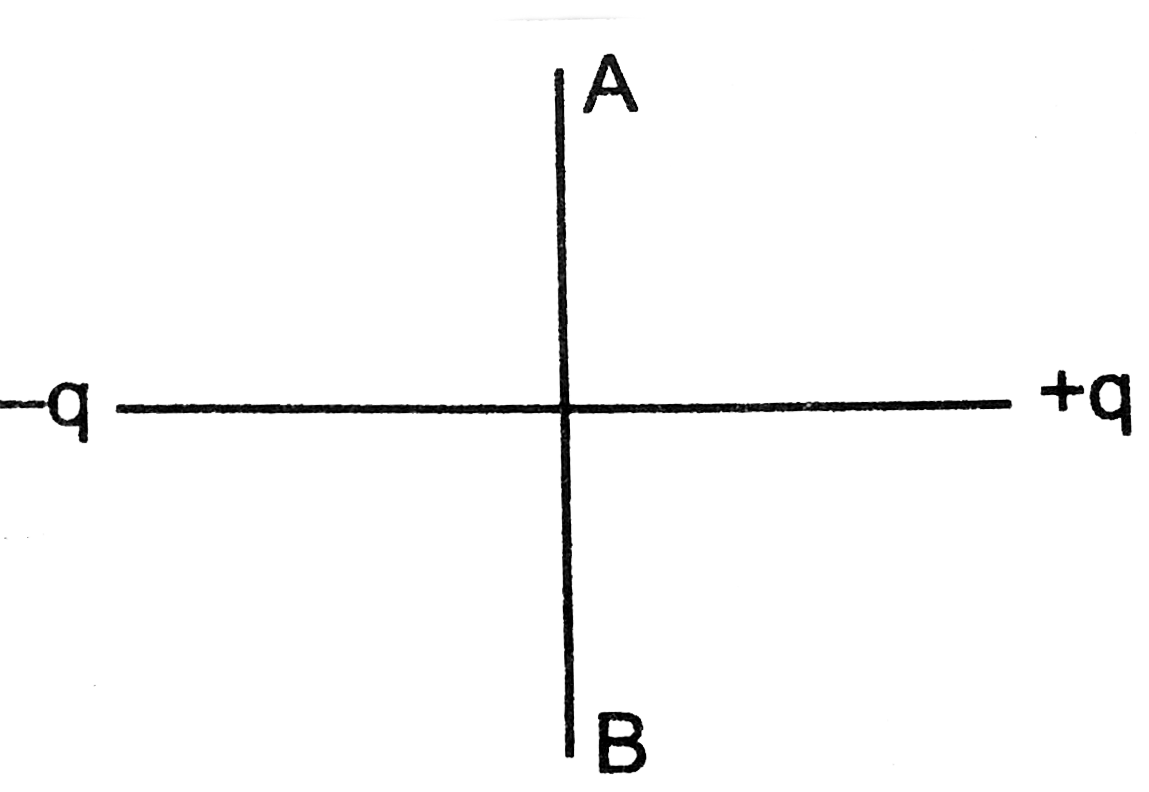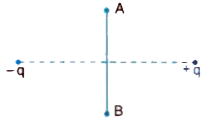A charge q is moved from a point A above a dipole moment p to a point B below the dipole on equatorial plane without acceleration. Find the work done in the process.

Video Solution
Text Solution
At any point on equatorial line of an electric dipole, electric potential is Zero. Therefore, work done in moving a charge q from A to B is zero.
|
Similar Questions
Knowledge Check
The angle between the dipole moment and electric field at any point on the equatorial plane is
A180∘B0∘C45∘D90∘A positive point charge q is carried from a point B to a point A in the electric field of a point charge +Q at O. If the permittivity of free space is ε0, the work done in the process is given by (where a=OA and b=OB) -
AqQ4πε0(1a+1b)BqQ4πε0(1a−1b)CqQ4πε0(1a2−1b2)DqQ4πε0(1a2+1b2)A charge is taken from a point A to a point B. The work done per unit charge in the process is called
Athe potential at ABthe potential at BCthe potential difference between Band DDthe potential difference between A and B
Electric potential at any point in equatorial plane of a dipole is ………. .
View SolutionAn electron having charge e located at A, in the presence of a point charge +q located at O, is moved to the point B such that OAB forms an equilateral triangle the work done in the process is equal to
View SolutionA charge is taken a point A to a point B. The work done per unit charge in the process is called
View SolutionFor an electric dipole, the field at a point on the equatorial line and the dipole moment are
View SolutionThe electric field at a point on equatorial of a dipole and direction of the dipole moment
View Solution

